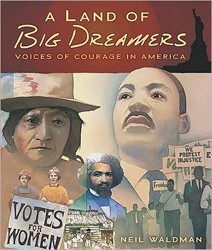This is a fictionalized version of the author’s mother’s early life when she emigrated from Odessa, Russia to Toronto in 1921. At the age of 11, Rosie worked as a “finisher” in a sweatshop factory in Toronto’s garment district. Yitzy, the boss, yelled at the workers not to steal the scraps left from the capes and evening wraps they sewed for rich ladies and for Eaton’s Department Store. Rosie wanted to make a cape like the one worn by her ballerina mother, who was killed by the Cossacks before Rosie and her grandmother, Bubba Sarah, fled to Toronto. She couldn’t understand why scraps were wasted in the garbage, and when she swept them up, took some to make her cape. She wanted to wear it to the Royal Alexandra Theatre where on Sunday, her day off, she watched people entering to see the ballet, which she had attended in Russia to see her mother perform. Readers will enjoy reading how Rosie deals with Yitzy when she confesses to stealing the scraps to make her cape, and how she ultimately gets invited to see the ballet at the theatre. The loving relationship with her grandmother is well developed, and the author shows them celebrating the Sabbath.
Freedman ends by telling how Rosie became a union organizer, helping to make the working conditions at Yitzy’s factory safer. The reader will learn some history of Toronto’s Jewish neighborhoods, including the Kensington Market, which “everyone called the Jewish People’s Market.”
Black and white detailed illustrations and Rosie’s resourceful character show readers how immigrant children had to work instead of attending school. This could be used as a discussion starter, as Freedman notes in her introduction that “there are still sweatshops hidden all over the world where young children slave over sewing machines.” For ages 9 – 12.




